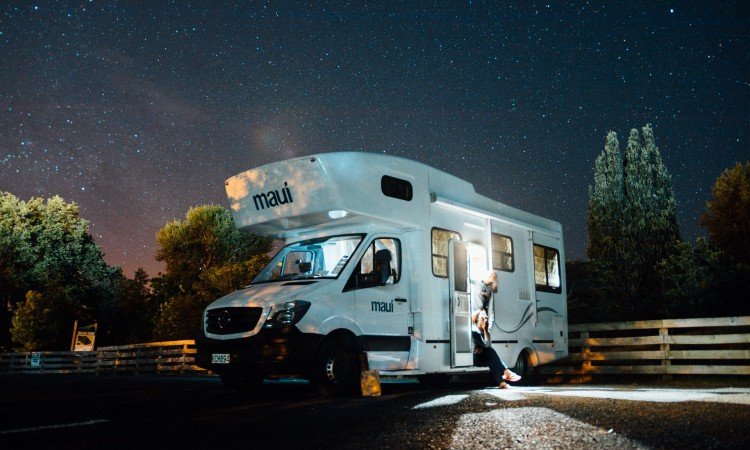
Car Battery amp hours: In general, most car batteries have between 40 and 65 amp hours. Typically, you’ll see this as Ah on a battery. Amp hours tell you how much amperage a car battery outputs in one hour.
Recreational vehicles are battery consumers, and most of them also have access to modern conveniences for more comfortable travel. With so many differences in escape, RV consumers have some demand for electricity, and in many cases, a lot. You want to get a rough idea of how many car battery amp hours your RV needs.
Batteries in recreational vehicles use the lead-acid concept. They are made of lead and lead oxide sheets immersed in 36% sulfuric acid and 64% water as electrolytes. They have several cells in series, each producing about 2.1 volts. A 12-volt lead-acid battery produces a total output voltage of 12.6 volts, while six batteries are connected in series.
Lead-acid batteries have the potential to be used technically to store electricity rather than make it. Therefore, the size of the lead plate, as well as the amount of electrolyte, determines how much electricity the battery can store.
It’s worth noting that to estimate daily amp usage, hours of use and amps per hour are required. Consumers of such vehicles will need to generate and store electricity in order to benefit from their use as needed.
How do I calculate car battery amp hours

When planning for alternative energy sources, almost everyone underestimates the amount of electricity they consume. Determining RV amp hours usage without having to run the generator in the sun can seem like a frustrating job. Before you start planning, it’s important to figure out the total car battery ah of electrical energy you consume each day.
Unfortunately, the ideal case of fixed computation doesn’t apply in this case because it’s very different for everyone. It is important to understand watts and watt-hours as an RVer, and this article covers that as well. Determining the watt car battery ah rating of equipment or appliances that must be used is necessary to understand the consumption (i.e., watt hours) of a particular appliance over a period of time.
Step1
First, you need to figure out how many amps you consume per day by counting amp usage by hours of use. Therefore, you must calculate car battery watt hours and voltages separately for each device and each appliance. Know that watts are usually expressed as the operating voltage times the current draw of the device. So you can adjust the amperage in terms of watts/volts.
For example, a 120-volt toaster with 9 amps will draw 1080 watts.
Mathematically, 120 volts*9 amps = 1,080 watts.
However, also include 12-volt appliances in the calculation. For example, if a 12-volt RV furnace draws 7 amps, it uses 84 watts.
Mathematically, 12 volts*7 amps = 84 watts.
From this fact, if you’ve determined that your RV typically draws around 2,100 peak watts, you can use a 20 amp outlet without worry.

Step2
Second, the current consumption of some appliances varies based on usage. For example, flat-screen TVs allow the brightness of the display to be adjusted, including volume controls. In turn, the total amount of amps consumed by a TV or such device will first be considered to power it. Most packages tend to contain all the needed information or you can certainly look it up online.
For appliances that cycle on and off, such as refrigerators, consider purchasing a power meter to measure watt-hours. You can plug your entire RV or 120-volt unit into the meter for a set period of time to measure the watt-hours consumed. Be careful not to exceed the rated car battery ah capacity of the meter. Apart from that, a battery monitoring system will come in handy to decide how much power your device uses. For example, turning on a gas stove will display the current reading of the current draw on the connected battery monitor. However, battery manufacturers generally recommend using only half of the available battery capacity as it extends battery life. That is, if you decide you need about 200 amp hour 12 volt battery, you’ll have 100 amp hour 12 volt battery available.
Start by thinking about the relevant electrical items you will need and how long you plan to use them in a typical 24-hour period. Determine how much current each required electrical device typically uses. You must perform the calculation in ampere-hours because your motivation is to find the total ampere-hours of your RV.
Step3
Finally, total the hours and compare that to the amps per hour provided by a fully charged battery pack. As a first-hand tip, it’s easier to convert DC and AC measurements when comparing them to watt-hours. Also, the start-up compressor on the air conditioner draws a brief over-current to keep the machine running. Once you have successfully determined and added the amp hours requirements for each instrument that will fully operate your RV, you will know your shore power requirements in watts.
How many amp-hours are in a 600 CCA battery
You can use the CCA rating number of your, say, car battery and multiply it by 0.7—if you possess a 600 in the CCA, you will get around 420 in A-H. You can use the A-H rating number of your car battery, again, and multiply it by 7.25—if you possess a 100 in the A-H, you will get around 725 in CCA.
Conclusion
The illustrations in this article on learning to calculate car battery amp hours and estimating your needs will suffice. In reality, however, more things can end up draining your battery.

